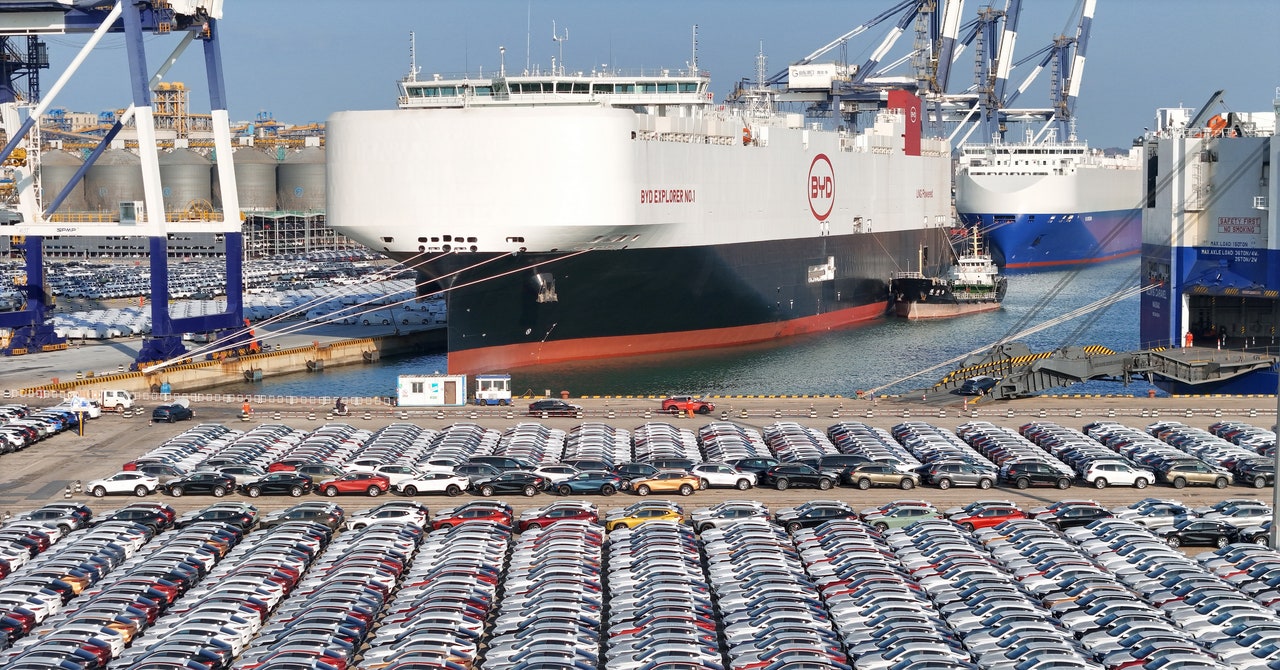This story originally appeared on WIRED en Español and has been translated from Spanish.
China has positioned itself as the main car supplier in Mexico, with exports reaching $4.6 billion in 2023, according to data from Mexico’s Secretariat of Economy.
The Chinese automaker BYD surpassed Honda and Nissan to position itself as the seventh largest automaker in the world by number of units sold during the April to June quarter. This growth was driven by increased demand for its affordable electric vehicles, according to data from automakers and research firm MarkLines.
The company’s new vehicle sales rose 40 percent year over year to 980,000 units in the quarter—the same quarter wherein most major automakers, including Toyota and Volkswagen, experienced a decline in sales. Much of BYD’s growth is attributed to its overseas sales, which nearly tripled in the past year to 105,000 units. Now BYD is considering locating its new auto plant in three Mexican states: Durango, Jalisco, and Nuevo Leon.
Foreign investment would be an economic boost for Mexico. The company has claimed that a plant there would create about 10,000 jobs. A Tesla competitor, BYD markets its Dolphin Mini model in Mexico for about 398,800 pesos—about $21,300 dollars—a little more than half the price of the cheapest Tesla model.
Prevented from selling their wares to the United States due to tariffs, Chinese EV manufacturers have explored other markets to sell their high-tech cars. However, as Mexico establishes itself as a key market for Chinese electric vehicles, officials in Washington fear that Mexico could be used as a “back door” to access the US market.
That tariff-free access is part of the US-Mexico-Canada Agreement (T-MEC), an updated version of the North American Free Trade Agreement that, as of 2018, eliminated tariffs on many products traded between the North American countries. Under the treaty, if a foreign automotive company that manufactures vehicles in Canada or Mexico can demonstrate that the materials used are locally sourced, its products can be exported to the United States virtually duty-free.
According to official figures, 20 percent of light vehicles sold last year in Mexico were imported from China, representing 273,592 units and a 50 percent increase compared to 2022. Currently, most of the vehicles imported from China come from Western brands that have established manufacturing plants in that country, such as General Motors, Ford, Chrysler, BMW, and Renault.
Mexico is the second largest market for Chinese automobiles worldwide, behind only Russia, according to data from Linked Global Solutions, a company specializing in business between China and Latin American countries.
A Trade War Against China
Both the United States and the European Union have intensified a trade war against China, focusing on automobiles and semiconductor chip production, which have been the subject of investigations for predatory practices, tariffs, and restrictions. This new geopolitical strategy is prompting Western companies to look for alternatives to relocate their factories outside of China, a trend known as “nearshoring.”
Concerned about the potential impact on domestic automakers, the US has raised tariffs on Chinese-made electric vehicles to 100 percent. Canada is also considering implementing its own tariffs on Chinese-made vehicles.
Read the full article here




